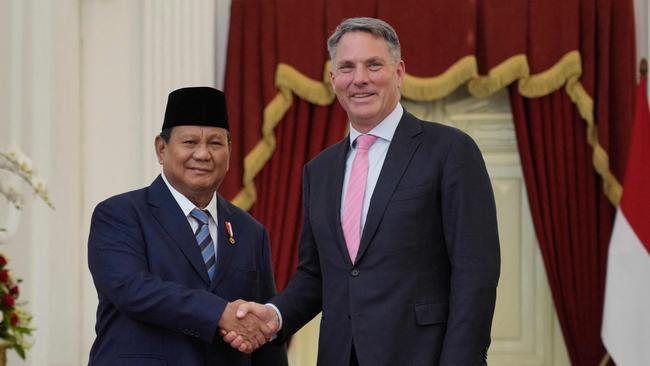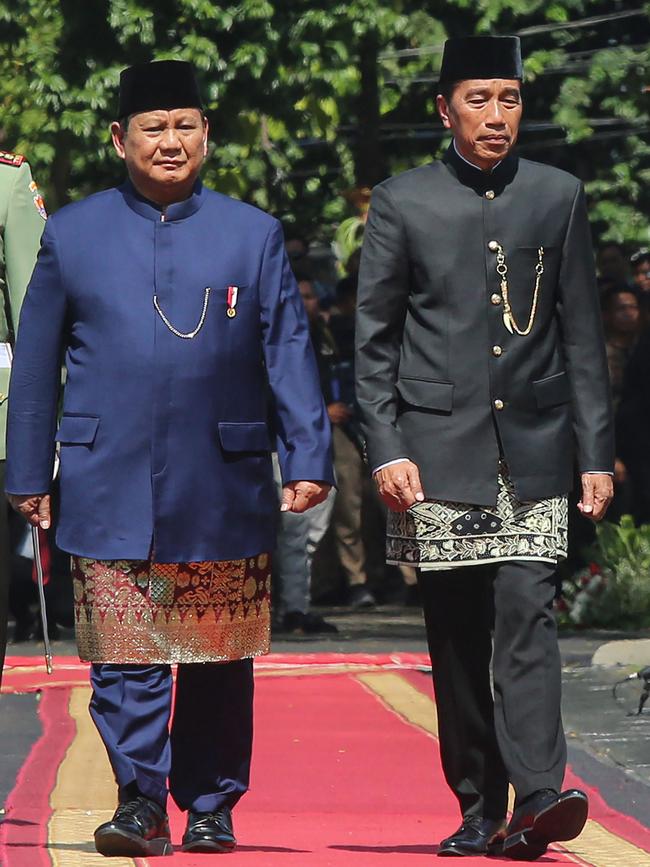Prabowo to build on global standing
There is an expectation that diplomacy and foreign policy will occupy more of the time of Indonesia’s new president, Prabowo Subianto, than his predecessor. But what does that look like?

International relations for Indonesia’s new president, Prabowo Subianto are a visceral affair, unlike for his predecessor Joko Widodo, who seldom seemed to care.
Absence was the condition that mostly qualified Widodo’s attitude to the international, summed up by his failure to attend the UN General Assembly during his decade in power.
Initially, Widodo reportedly felt peripheral (even insultingly neglected) in multilateral events.
Prabowo, by contrast, is arguably the most “international” of Indonesia’s eight presidents, perhaps rivalled by B.J. Habibie for professional experience abroad, and Abdurrahman Wahid for worldly mentality. There is a legitimate expectation that diplomacy and foreign policy will occupy more of the time of the new president than that of his predecessor.
The big question is, what does that look like?
It’s hard to say because Prabowo’s concept of the international, and his own and Indonesia’s place in the world, is influenced by a complex mix of rational calculation and impulsive emotion. He is skilled at thinking strategically, yet he prides himself on being undiplomatic.
To a legitimate query from the Japanese ambassador on the rise of trade protectionism in Indonesia at a briefing last November, he responded: “We don’t want to be a nation of coolies”, adding “we don’t always want to be subsistence peasants”.
At the same event, hosted by the Centre for Strategic and International Studies, the Italian ambassador’s benign request for a view on future European Union-Indonesian relations led to a desultory series of observations that the EU practised “double standards”, “does not love us” and was in decline to the point where “we don’t really need [you] anymore”.
These views are not simply assertions of national pride; they are not political. They’re personal. No discussion on Prabowo’s view of international affairs is complete without reference to his days as a schoolboy in Singapore, colonial Hong Kong and Europe, when his father took the family into exile after joining the failed Permesta rebellion.
It smarts that there were certain places that “as a brown man” he could not enter. “We know how demeaning it is to be considered second, third, fourth class,” he said.
These sentiments, partly at least, define who Prabowo is – an outsider from childhood, oddly, historically, even at home.
So, foreign politicians and diplomats beware. Prabowo will be conscious of his own and his nation’s dignity. Perceived slights to either will elicit bellicose responses. This is especially problematic because there are domestic constituencies in the West who want to see Prabowo punished for his human rights record and who suspect he is a dictator in democrat’s clothes.
Still, there are two sides to his emotional reflexivity that, if managed well, can make life a little easier for Canberra. Prabowo acknowledges Australian and American support for Indonesia in its independence struggle against the Dutch. “We cannot forget this debt of honour,” he says.
And cohabiting with the affective is a rational, strategically calculating Prabowo who follows trends in strategic analysis and possesses a more sophisticated and nuanced view of international affairs than the man he succeeds.
He references a “smaller world” in which distant conflicts quickly affect everyone, and environmental and technological disruption generate shared threats that require deep international co-operation.

To meet these challenges, Prabowo recognises the need for a domestically strong and internationally engaged Indonesia.
Consequently, there are three benchmarks against which we can assess Indonesia’s strategic evolution under Prabowo.
The first is domestic resilience. More cogent than Widodo in the formulation of a foreign policy strategy, Prabowo will seek to emulate and out-do Widodo in his focus on economic development.
He argues Indonesia’s ability to exercise regional or global leadership depends on demonstrating it can fix its own problems. His priority is to lift economic growth, improve human welfare, and secure food and energy supplies.
This lifts a page out of the playbook of his late father-in-law, Suharto, who argued foreign policy activism could follow the accumulation of domestic strength.
The second is national defence and security, which is a priority that flows from the first. Prabowo will continue modernising the Indonesian armed forces, the TNI – work he started while serving as Widodo’s Minister for Defence.
He has made expensive commitments to social welfare programs that will limit his ability to spend more on the military unless he raises taxes (a national governance necessity) or reprioritises the budget.
Military modernisation is justified. Indonesia spends less than 1 per cent of GDP on defence. The sourcing of equipment will bias the US and its allies – a strategic plus for the West. But Prabowo also aims to expand the role of TNI in domestic security and restore its stature as an institution. We will likely see a rebalancing of security roles with the police, such as in the guarding of vital national assets.
Parliament is considering revisions to the 2002 police law and the 2004 TNI law, which could see enhanced powers for both. Prabowo must be careful here because any move to strengthen the security forces will be seen as a further erosion of democracy.
The third benchmark is multilateral engagement. Prabowo expresses optimism that the US-China strategic rivalry, the fate of Taiwan and territorial disputes in the South China Sea can be contained. But he argues that more needs to be done to promote dialogue and co-operation.
In doing so, Prabowo has expressed a commitment to a UN-centred global order. While this does not imply a specifically Western one, he endorses the Enlightenment values that underpin the UN Charter.
Moreover, he has described Indonesia as able to act as a “bridge” between conflicting parties, a role to which he believes it is suited because of its historic non-aligned status. He will continue to walk the delicate balance between the US and China, while urging restraint on both.
A test will be whether a renewed commitment to multilateralism will translate into an assertion of Indonesia’s withered leadership within ASEAN. As a former military man, Prabowo might fancy that he can help curb the excesses of Myanmar’s military junta, even as a strong vein of scepticism persists within Jakarta’s foreign policy and defence elites over ASEAN’s problem-solving abilities.
Whatever the direction of international affairs, Prabowo has ensured he will be at the centre of big foreign political, economic and defence decisions. His appointment of fierce loyalists to run the foreign and defence ministries signals a stronger role for this presidency in international affairs than under its predecessor.
-
Donald Greenlees is a senior adviser to Asialink, University of Melbourne, and a former Indonesia correspondent for The Australian.


